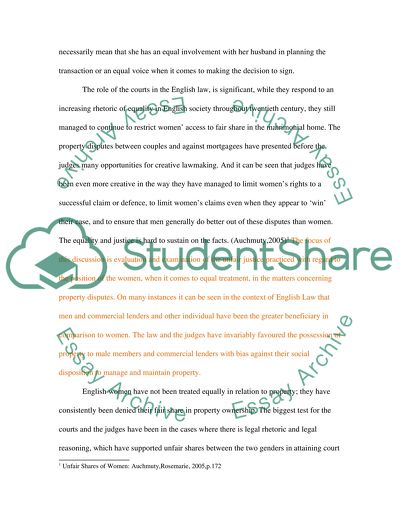Cite this document
(“Feminist Perspectives on Land Law Essay Example | Topics and Well Written Essays - 3000 words”, n.d.)
Retrieved from https://studentshare.org/law/1502642-feminist-perspectives-on-land-law
Retrieved from https://studentshare.org/law/1502642-feminist-perspectives-on-land-law
(Feminist Perspectives on Land Law Essay Example | Topics and Well Written Essays - 3000 Words)
https://studentshare.org/law/1502642-feminist-perspectives-on-land-law.
https://studentshare.org/law/1502642-feminist-perspectives-on-land-law.
“Feminist Perspectives on Land Law Essay Example | Topics and Well Written Essays - 3000 Words”, n.d. https://studentshare.org/law/1502642-feminist-perspectives-on-land-law.


